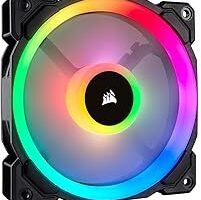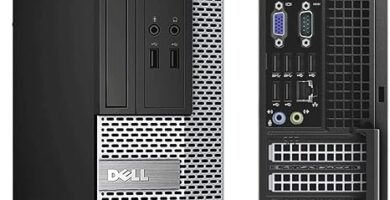
CPU Speed
The CPU speed, also referred to as clock speed, is one of the most important factors in determining how fast a computer processes instructions. Measured in gigahertz (GHz), it influences how quickly tasks are executed, whether you’re gaming, browsing, or running demanding applications like video editing software. Understanding CPU speed is crucial when building or upgrading a PC, as it directly impacts system performance.
In this article, we’ll explore the main characteristics of CPU speed, why it’s priced the way it is, how it compares to other specifications, and the pros and cons of different CPU speeds.
Characteristics of CPU Speed
CPU speed, expressed in GHz, measures how many cycles a CPU can complete per second. A higher GHz generally means faster performance, particularly for tasks that rely on single-thread processing, such as gaming or launching applications. For example, modern CPUs, like Intel’s Core i9 and AMD’s Ryzen 9, can reach speeds upwards of 5GHz during peak performance, ensuring smooth gameplay and fast processing times for professional tasks like 3D rendering or video editing(Lenovo).
However, clock speed isn’t the only factor. The number of cores also plays a vital role in overall CPU performance. A CPU with a higher core count, such as AMD’s Ryzen 5950X with 16 cores, excels at multitasking, making it a better choice for professionals who rely on heavy, multi-threaded applications like software development or animation.
Why Is CPU Speed Priced the Way It Is?
Price is largely influenced by the balance between CPU speed, core count, and the architecture behind the processor. CPUs with higher clock speeds and more cores, like Intel’s Core i9 or AMD’s Ryzen 9, tend to cost significantly more because they are engineered to deliver high performance under demanding workloads. The higher the speed and more sophisticated the architecture, the more expensive the CPU becomes.
Additionally, features like overclocking, which allows users to push the CPU beyond its rated speed, contribute to pricing. Overclockable processors such as Intel’s K-series or AMD’s X-series are generally more expensive than locked models because they offer more flexibility for users to enhance performance.
Comparing CPU Speed with Similar Products
When comparing CPUs from different manufacturers, Intel and AMD are the two leading competitors. Intel CPUs, especially the i7 and i9 series, are known for their higher single-thread performance, making them the preferred choice for gamers and users running applications that require high clock speeds. For instance, Intel’s Core i9-12900K offers impressive speeds and excels in gaming due to its ability to handle high single-thread tasks efficiently.
On the other hand, AMD CPUs, particularly the Ryzen 7 and Ryzen 9 lines, offer a better balance between clock speed and multi-core performance. While they may not always reach the peak GHz of Intel’s top models, they excel in multi-threaded applications like video rendering and simulation, making them more versatile for professionals.
Pros and Cons of CPU Speed
Pros:
- Higher clock speeds ensure better performance in tasks that require fast processing, such as gaming, photo editing, and launching applications.
- Overclocking potential: CPUs with higher speeds and the ability to overclock offer greater flexibility for power users, allowing for further customization and performance tuning.
- Better single-thread performance: A CPU with a high clock speed typically performs better in tasks that rely on single cores, such as web browsing or light productivity tasks.
Cons:
- Increased heat output: Higher speeds often lead to higher thermal output, which requires better cooling systems to prevent the CPU from overheating.
- Power consumption: Fast CPUs, especially those running at or beyond 5GHz, consume more power, which can shorten battery life in laptops and lead to higher energy bills for desktop users.
- Higher cost: CPUs with high clock speeds, like Intel’s Core i9 or AMD’s Ryzen 9, are significantly more expensive, and the performance gains may not always justify the cost for casual users.
Advantages of CPU Speed
A CPU with a high clock speed offers numerous benefits, particularly for gamers and content creators. In gaming, faster CPUs deliver higher frame rates, leading to smoother and more immersive gameplay. For content creators, such as video editors or 3D animators, a faster processor ensures quicker rendering times, which translates into improved productivity.
Moreover, a CPU with faster speeds can enhance the overall user experience by reducing lag in tasks like launching applications, switching between programs, and web browsing. This can be particularly helpful for users who multitask frequently or use resource-intensive software.
Other Benefits of CPU Speed
Higher CPU speeds also improve the performance of emerging technologies such as virtual reality (VR) and AI-based applications. Many modern VR games and machine learning models require substantial processing power, and CPUs with fast clock speeds help meet these demands efficiently. Furthermore, faster processors contribute to better performance in data-heavy tasks such as data analysis, 3D modeling, and scientific simulations.
Additionally, CPUs with higher clock speeds generally offer more overclocking potential, allowing tech enthusiasts to squeeze extra performance from their systems when needed.
Opinions on CPU Speed
User opinions on CPU speed vary depending on the specific use case. Gamers typically prefer CPUs with high clock speeds and strong single-thread performance, as this directly impacts gaming experience. Many Intel users praise the company for its powerful i7 and i9 processors, which deliver exceptional performance in gaming setups.
However, AMD users often favor the Ryzen 9 series for its balance of high clock speeds and strong multi-core capabilities, making it an excellent choice for multitasking and creative workloads. In reviews, AMD is frequently highlighted for offering better value for money, especially in content creation tasks.
Frequently Asked Questions
Does a higher CPU speed mean better performance? Yes, a higher clock speed usually means the CPU can process more instructions per second, leading to faster performance in most tasks. However, other factors like core count and architecture are also crucial in determining overall performance.
What is a good CPU speed for gaming? A CPU speed of at least 3.5 GHz to 4 GHz is recommended for gaming. Single-thread performance is key, so processors with higher clock speeds typically deliver smoother gameplay.
Does CPU speed affect battery life? Yes, higher clock speeds consume more power, which can drain the battery more quickly, particularly in laptops. CPUs designed for efficiency, like those in mobile devices, typically have lower base speeds to conserve battery life.
Conclusions on CPU Speed
CPU speed plays a critical role in determining how fast and efficiently a computer performs, especially for gaming, multitasking, and creative workloads. While a high clock speed delivers superior single-core performance, the best processor for you will depend on your specific needs. Intel typically leads in single-thread performance, making it a great choice for gamers, while AMD offers a balanced approach with stronger multi-threading for users who prioritize multitasking and content creation.
Ultimately, the best CPU combines the right balance of clock speed, core count, and power efficiency, ensuring optimal performance without overspending.

How to Improve Your PC’s

Common Mistakes When Buying PC Components

Components

Personal Computer CPU Manufacturer

Computer Operating System

Computer RAM Capacity








